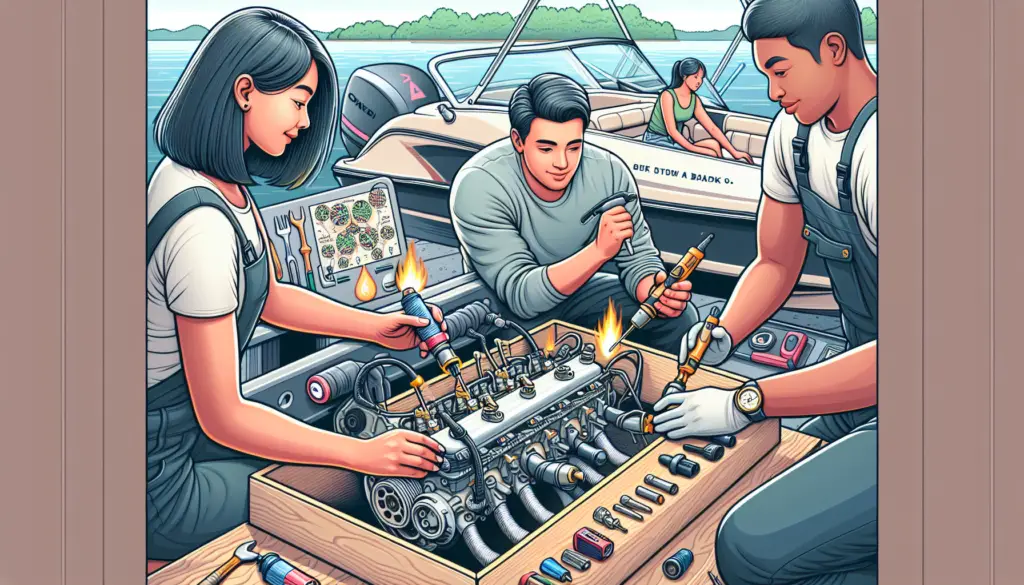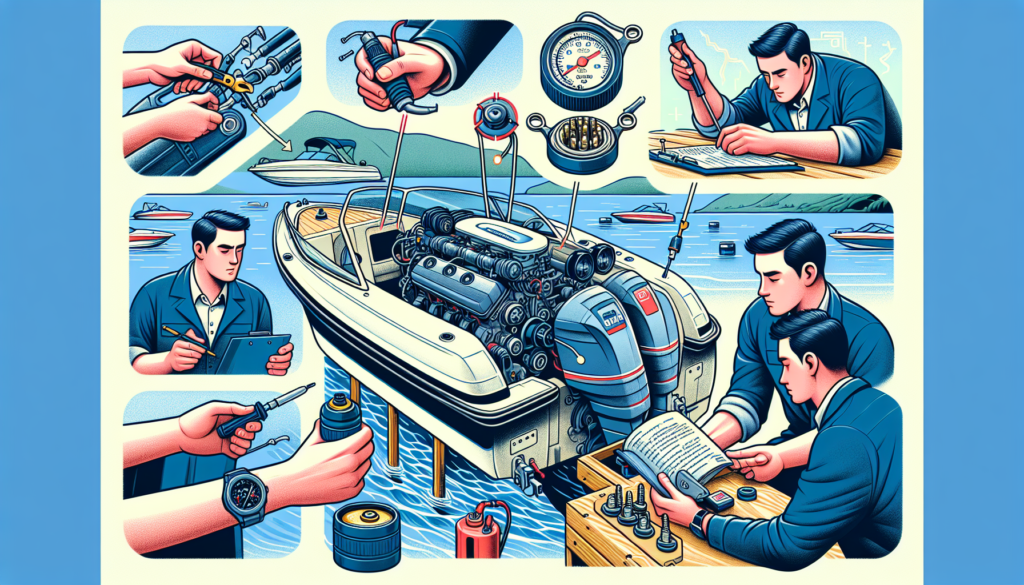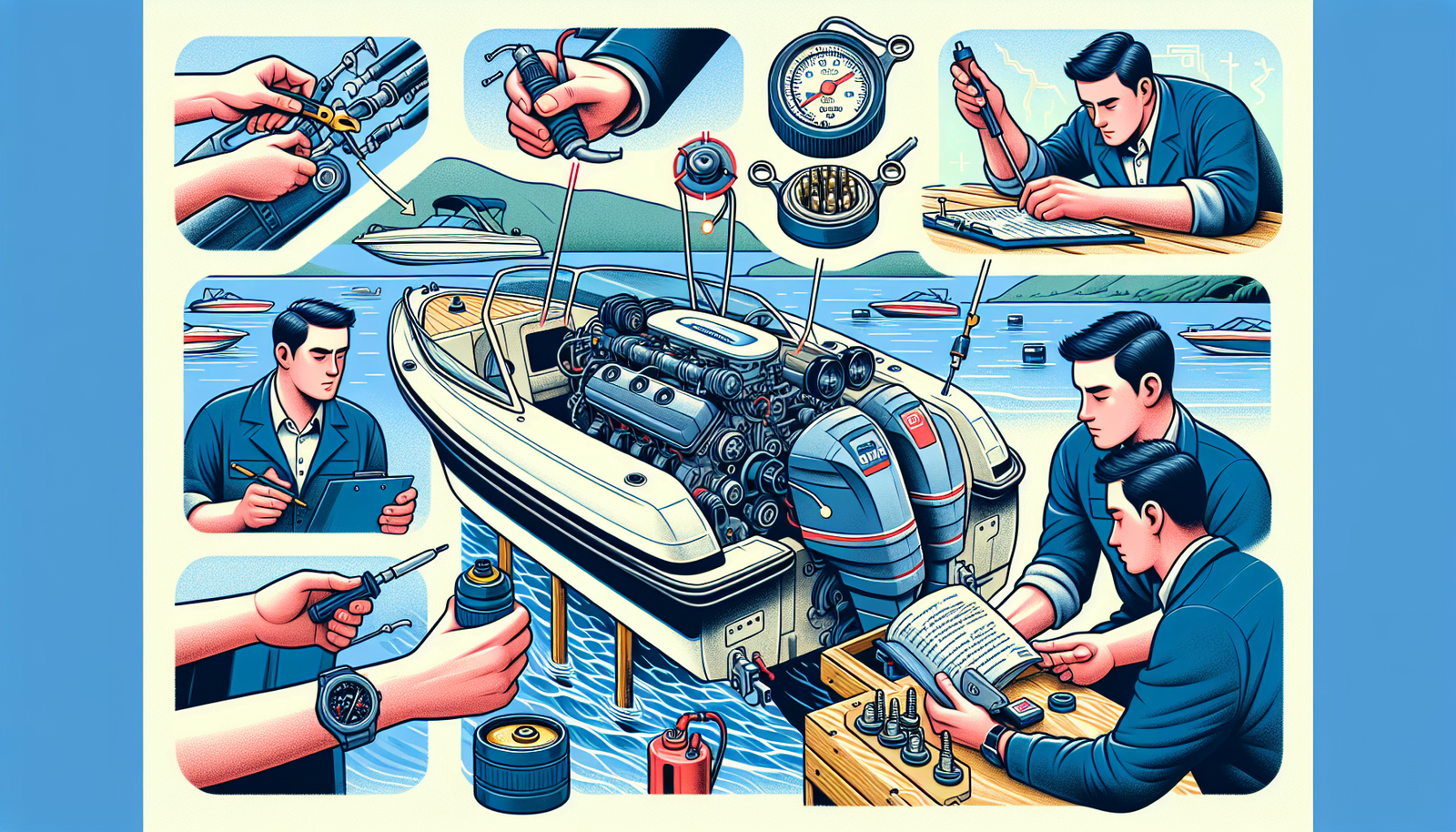Ready to hit the water this spring? Before you set sail, it’s crucial to ensure your boat engine is performing at its optimum. The article “Best Practices For Spring Commissioning Of Your Boat Engine” provides you with practical tips on tuning up your engine to avoid possible hitches during your spring boating adventures. This useful guide furnishes you with the necessary know-how that will significantly extend the lifespan of your engine, increase performance and most importantly, ensure safety for you and your loved ones on board.

Understanding the Importance of Spring Commissioning
Spring commissioning may seem like a tedious task to many boaters, but it’s an essential part of proper boat maintenance. Simply put, it refers to getting your boat ready after a season of non-use or winter storage, mainly focusing on the boat’s engine. This process is crucial for the longevity of your boat and optimal performance during the boating season.
Why there’s a need for spring commissioning
During the cold, harsh winter months, your boat’s engine remains idle and may undergo significant wear and tear. Spring is the perfect time to address any issues, as it marks the onset of the boating season. Spring commissioning ensures your boat is functioning well and in good health before you venture out to the water.
Impact of winter on boat engines
Many don’t realize the detrimental effects of winter on boat engines. Low temperatures can harden rubber parts and shatter fiberglass. Sitting idle can cause the engine oil to condense and sludge can build up, impacting the boat’s performance. Hence, it’s imperative to service your boat engine during the springtime.
Benefits of spring commissioning
Spring commissioning offers many benefits. It helps uncover hidden issues, improve boat performance, extend its lifespan, and ultimately save you money by preventing costly repairs. Most importantly, it assures your safety on the water.
Performing a General Inspection
The general inspection is an all-round check of your boat which includes various components like the body, engine, and more.
Checking the body of the boat
Evaluate the body for any signs of damage. Look for cracks, blisters, or indications of water intrusions. Inspect the hull and deck surfaces and check if any paintwork, varnishing, or repairs need to be done.
Inspecting the engine and propulsion system
Thoroughly inspect the engine compartment. Look for signs of rust, corrosion, or leaks. Check the hoses and belts for any cracks or breaks. Inspect the propulsion system including the propeller and shaft for any abnormalities.
Looking for signs of wear and tear
Examine all your equipment and parts of your boat, especially the parts that have been under a lot of strain. Check the lines, fenders, sails, ports, and hatches. Additional equipment such as life jackets and safety gear should also be inspected.
Spotting potential leaks
Inspect for any leaks. Examine the bilge and the bilge pump, as any unexpected water can lead to leaks. Check the seals around windows, doors, and hatches as these can also cause leaks during rains or heavy seas.
Cleaning the Boat Engine
Cleaning maintains the engine’s longevity and helps to identify unnoticed problems.
Importance of cleaning the engine
A clean engine is a well-running engine. Regular cleaning keeps your engine free from corrosion and dirt build-up, helping to ensure that all the systems are running efficiently and the engine’s life is extended.
Suitable cleaning products
It’s important to use the right products to clean your boat engine. Use a mild detergent or specialized boat engine cleaner. A degreaser can also come in handy to remove grease and grime from the engine.
The correct way to clean a boat engine
When cleaning your engine, do so gently and avoid high-pressure water as it can force water into sensitive areas. Use a soft brush to clean all parts of the engine, reaching into all crevices. Rinse carefully and allow the engine to dry thoroughly before using it.

Changing Engine Oil
The health of your boat’s engine largely depends on the quality and cleanliness of its oil.
Why changing engine oil is essential
Oil is essential for maintaining your engine’s performance and longevity. It lubricates the engine, reducing friction and heat. Over time, engine oil can degrade and become less effective, hence the need to change it regularly to maintain a smooth-running engine.
Choosing the right oil for your boat
Use oil that’s specifically designed for boat engines. Pay attention to viscosity, as it should suit your engine type and the weather conditions in which you operate your boat.
Steps for changing engine oil
To change your engine oil, first, warm up the engine. Then, using a pump, remove the old oil. Replace the oil filter and then refill with new oil. Always check the oil level after and keep it between the minimum and maximum mark.
Checking the Fuel System
As part of spring commissioning, assessment of your boat’s fuel system is crucial.
Assessing the condition of fuel tanks
Examine your fuel tanks for any leaks or damage. Ensure the tank vent is clear and not blocked. Check the condition of fuel lines and replace them if they appear cracked or stiff.
Checking hoses and connectors
Hoses and connectors should be inspected for signs of wear and tear. Ensure they are tightly connected and replace them if necessary.
Replacing fuel filters
Fuel filters trap impurities and prevent them from reaching the engine. Over time, they may become clogged and reduce fuel efficiency. They should be replaced during spring commissioning to ensure optimal performance.
Keeping fuel system free of water and debris
Water and debris are harmful to your fuel system. Use a fuel stabilizer to prevent water condensation and keep the system clean.
Inspecting the Cooling System
Cooling systems are part of the boat’s vital systems as they prevent overheating of the engine.
Importance of the cooling system in boat engines
A cooling system safeguards the engine from overheating and possible damage. Neglecting this system can lead to expensive engine repairs, hence the importance of regular maintenance.
Checking the coolant level
Check the coolant level and refill if it is low. Use only recommended coolant, as using improper coolant can damage the engine.
Cleaning and inspecting the heat exchanger
The heat exchanger exchanges heat between coolant and seawater, and hence it should be checked and cleaned regularly. Any buildup can reduce the heat exchange, affecting the cooling system’s efficiency.
Replacing antifreeze
Replace antifreeze as part of spring commissioning. It prevents the water in the engine from freezing during the winter and overheating during warmer months, ensuring your engine remains in good working condition.
Checking the Electrical System
Electrical systems are a fundamental part of your boat and should be checked regularly.
Reviewing wiring and connections for corrosion
Corrosion in your boat’s electrical system can lead to various issues. Hence, all wires, connectors, and terminals should be inspected for corrosion, wear, and tear.
Checking the battery condition
Check your battery’s charge level and general condition. Ensure that the terminals are clean and the electrical connections are securely fastened.
Testing the charging system
Ensure that the charging system of your boat is working properly. Inspect the alternator belt for wear and tension, and ensure the voltage regulator is functioning correctly.
Inspecting and Maintaining the Propulsion System
The propulsion system powers your boat, making it crucial to keep it in top shape.
Examining propellers and shafts
Check the propellers for nicks, dents or bending. The slightest damage can reduce your boat’s performance. Examine the shafts to ensure they are straight and free from corrosion and deposits.
Assessing gears and couplings
Gears and couplings are also integral for the motion of your boat. Ensure they are properly aligned and lubricated.
Lubricating as necessary
Apply lubricant to moving parts of your propulsion system. This will help to protect them from friction and corrosion.
Testing the Boat on Water
No boat commissioning is complete without a sea trial.
Benefits of a sea trial
Sea trials allow you to identify any issues while operating the boat on water. You can test its performance in real conditions and make necessary adjustments.
Identifying any issues while operating on water
Stay attentive to any abnormalities or deviations while operating your boat. Identify any problems in your engine’s performance and address them as soon as possible.
Procedures for a successful sea trial
Place your boat into forward gear at low speed, then shift to neutral. Repeat the process by placing it into reverse gear. Check your gauges and instruments are functioning accurately and note down any issues for correction later on.
Establishing a Regular Maintenance Schedule
Regular maintenance extends the life of your boat and ensures its optimal performance.
Importance of regular maintenance
Regular maintenance can prevent costly repairs in the future and enhance boating safety. It also provides peace of mind knowing your boat is always ready for the water.
Creating a maintenance schedule
To enable regular maintenance, create a schedule that maps all the necessary maintenance tasks. Make it a point to follow this schedule strictly.
Adhering to the schedule throughout boating season
Although it can be tempting to skip the maintenance schedule when you’re busy or want to maximise your time on the water, resist the temptation. Regular maintenance is key to your boat’s longevity and your enjoyable boating experience.
In conclusion, spring commissioning is much more than just a yearly ritual. It’s part of responsible boat ownership and involves thorough inspection, cleaning, and necessary fixes. Ensuring your boat is in top-notch condition before hitting the water will safeguard your investment and promise countless enjoyable outings in the boating season ahead.

